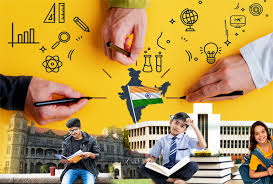Introduction
The National Education Policy (NEP) 2020 represents a landmark shift in India’s educational landscape, setting ambitious goals for transforming the sector. This comprehensive policy aims to address longstanding challenges and adapt the education system to meet contemporary needs. By focusing on school education, NEP 2020 aspires to create a more holistic, inclusive, and dynamic learning environment. This blog explores the key reforms introduced by NEP 2020, their impact on Indian schools, and the prospects for the future.
Overview of NEP 2020
NEP 2020 marks a significant milestone in Indian education, being the first major overhaul since the National Policy on Education was introduced in 1986. The policy seeks to address several key issues, including quality, accessibility, and relevance in education. NEP 2020 aims to create a more robust and inclusive education system by emphasizing a holistic approach, fostering multidisciplinary learning, and ensuring the integration of modern pedagogical practices. The focus is not only on improving educational outcomes but also on preparing students for the future in a rapidly changing world.
Key Reforms Introduced by NEP 2020
Holistic and Multidisciplinary Education
1. 5+3+3+4 Structure
One of the most notable changes introduced by NEP 2020 is the restructured school education system, which replaces the traditional 10+2 format with a new 5+3+3+4 system. This structure is designed to better align with the developmental stages of children and provide a more tailored educational experience.
- Foundational Stage (5 years): This stage covers ages 3 to 8 and includes pre-school and Grades 1 and 2. The focus is on play-based learning and foundational literacy and numeracy.
- Preparatory Stage (3 years): Covers Grades 3 to 5, focusing on experiential learning and basic subjects.
- Middle Stage (3 years): Encompasses Grades 6 to 8, with an emphasis on core subjects and the introduction of more complex concepts.
- Secondary Stage (4 years): Includes Grades 9 to 12, where students specialize in subjects based on their interests and career aspirations.
2. Introduction of Coding and Vocational Skills
NEP 2020 introduces subjects like coding, critical thinking, and vocational skills at an early stage. By integrating these subjects into the curriculum from a young age, the policy aims to equip students with essential skills for the digital economy and the future job market.
Focus on Early Childhood Care and Education (ECCE)
1. Universalization of ECCE
The policy underscores the importance of Early Childhood Care and Education (ECCE) by promoting its universalization through Anganwadis and pre-schools. ECCE is crucial for laying the foundation for lifelong learning and development. NEP 2020 aims to ensure that all children receive quality early education, which is essential for their cognitive and emotional development.
2. Foundational Literacy and Numeracy
NEP 2020 emphasizes the need for foundational literacy and numeracy by Grade 3. Ensuring that children acquire these basic skills early on is fundamental for their future academic success and overall development.
Language and Multilingualism
1. Regional Language Instruction
The policy advocates for the use of regional languages (mother tongues) as the medium of instruction till at least Grade 5. This approach is intended to improve comprehension and engagement, particularly in areas where students are more comfortable with their native languages.
2. Three-Language Formula
NEP 2020 reaffirms the three-language formula, which includes the study of the mother tongue, Hindi, and English. This formula aims to provide students with a balanced linguistic education and promote multilingualism.
Curriculum and Pedagogy Reforms
1. Reduction of Curriculum Content
One of the key reforms is the reduction of curriculum content to focus on core concepts and essential skills. This shift is intended to alleviate the burden of rote learning and enable students to engage more deeply with the material.
2. Experiential Learning
NEP 2020 promotes experiential learning, critical thinking, and creativity. By integrating arts, sports, and ethics into the curriculum, the policy aims to create a more engaging and holistic educational experience.
Assessment and Examination Reforms
1. Competency-Based Assessments
The policy proposes a shift from high-stakes exams to regular, competency-based assessments. This approach aims to assess students’ understanding and application of knowledge rather than rote memorization.
2. Board Exams
NEP 2020 suggests reforms in board exams to focus on testing core skills and knowledge. Students will have multiple attempts to clear exams, providing them with more opportunities to succeed.
Inclusivity and Accessibility
1. Focus on Marginalized Communities
The policy emphasizes the inclusion of economically disadvantaged groups and students with disabilities. NEP 2020 aims to ensure equitable access to education for all students, regardless of their socio-economic background.
2. Gender Sensitivity and Equity
NEP 2020 includes a special focus on gender sensitivity and equity in education. The policy aims to address gender disparities and promote equal opportunities for all students.
Teacher Training and Professional Development
1. Continuous Teacher Training
NEP 2020 introduces the National Professional Standards for Teachers (NPST) to ensure ongoing professional development. Continuous teacher training is essential for improving teaching quality and adapting to new pedagogical practices.
2. Use of Technology
The policy also emphasizes the need for teachers to be trained in digital education and online teaching skills. This is crucial for integrating technology into the classroom and enhancing the learning experience.
Use of Technology in Education
1. Digital Infrastructure
Expanding digital infrastructure is a key focus of NEP 2020. The policy aims to improve access to digital tools and resources, especially in rural areas, to bridge the digital divide and enhance educational opportunities.
2. Blended Learning Models
NEP 2020 promotes blended learning models that combine online and offline education. This approach offers flexibility and can cater to diverse learning needs and preferences.
Role of School Governance and Leadership
1. School Clusters
The establishment of school clusters is a significant reform aimed at pooling resources and enhancing collaboration between schools. This model is expected to improve resource utilization and provide better support to schools.
2. Leadership Development
Training school leaders and administrators is crucial for the successful implementation of NEP reforms. Effective leadership is essential for driving change and ensuring that educational policies are effectively executed.
Challenges in Implementing NEP
1. Infrastructure Limitations
Despite its ambitious goals, NEP 2020 faces challenges such as the digital divide, lack of resources, and insufficient teacher training. Addressing these limitations is essential for the successful implementation of the policy.
2. Language Barriers
Implementing multilingual education poses challenges due to India’s diverse linguistic landscape. Ensuring that educational content is available in various languages is a key challenge that needs to be addressed.
Prospects for the Future
1. Improved Quality of Education
NEP 2020 has the potential to significantly improve the quality of education in India by focusing on holistic and skill-based learning. Long-term outcomes include higher educational standards, reduced drop-out rates, and better learning outcomes.
2. Global Competitiveness
By preparing students for global challenges, NEP 2020 aims to enhance India’s educational standards and global competitiveness. The policy’s focus on skill development and multidisciplinary learning is expected to prepare students for the future workforce.
Conclusion
In summary, NEP 2020 represents a transformative shift in Indian education, with a focus on holistic, inclusive, and skill-based learning. While the policy introduces several promising reforms, successful implementation will require overcoming challenges such as infrastructure limitations and language barriers. Collaboration between government, educators, and communities will be crucial for realizing the full potential of NEP 2020. As India moves forward, embracing these reforms can pave the way for a more equitable and effective education system, better preparing students for the future.




